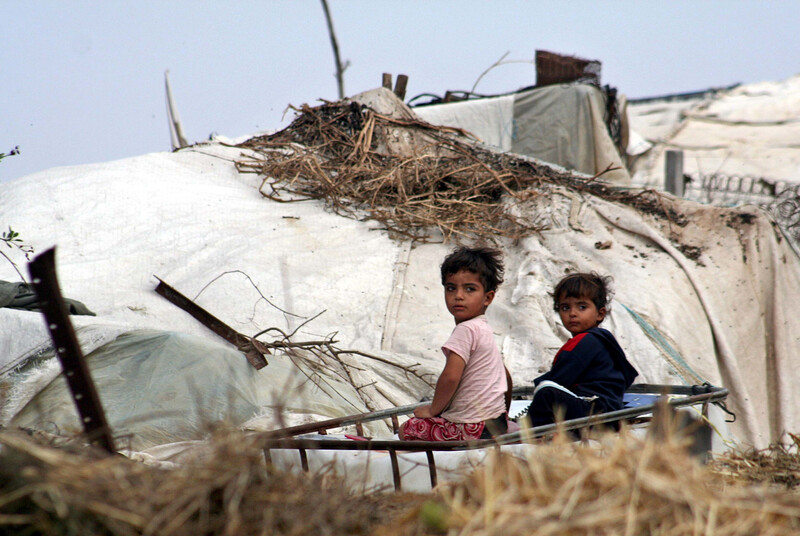The Electronic Intifada 13 April 2018

Around 70 percent of Gaza’s population is dependent on humanitarian assistance.
APA imagesOsama al-Kahlout receives requests for help every day. There are so many that he cannot promote all of them. The most urgent cases have to be prioritized.
He is among a number of people living in Gaza who use Facebook as a tool to raise money for the poor.
Through posting photographs and information on the social media website, he has found a donor who financed the construction of a five-story home for an extended family in Deir al-Balah refugee camp. Comprising 40 people, the extended family had previously been living in the same small house. The donations came from Qatar and were arranged by cooperating with a Qatari organization already active in Gaza.
Al-Kahlout is a journalist, writing about social issues for Donia Al-Watan, a Palestinian website.
This work “makes me close to people who are in need,” he said.
Al-Kahlout regularly posts appeals for money on his Facebook page. Generally, these appeals are for families requiring food, medicine or accommodation.
One such appeal was for five families living in a cemetery. Their homes were badly built, lacking proper windows. The appeal raised enough for renovations to be carried out on their homes and to give them food and clothes.
“I wish I could help everyone who is in need,” said al-Kahlout. But he is unable to do so.
Some of the requests he receives are not deemed suitable for Facebook appeals as they require intervention from the official authorities. He also has to bear in mind that hardship is widespread in Gaza.
For that reason, he has to concentrate on cases where the problems are particularly acute.
“Calamity”
Michael Lynk, a UN special rapporteur on Palestine, stated recently that Gaza has been “moving steadily backwards in the past two decades from modest poverty to a human calamity.” At 44 percent, Gaza’s rate of unemployment is the world’s highest, while youth unemployment comes to 61 percent.
Around 70 percent of the population is dependent on humanitarian assistance.
Perhaps the most extreme form of poverty is when people no longer have shelter because they cannot afford to pay rent. According to Gaza’s ministry of social development, around 15 families are known to have been without shelter this year.
Ahmed Salah, a computer engineer, published an appeal on Facebook during February to help two families living in the streets of Nuseirat refugee camp. The families had been evicted from their homes after being unable to pay rent for three months.
The appeal was accompanied by a video. Salah felt it necessary “to show the conditions these families lived in.”
By being active on social media, Salah has amassed around 40,000 followers on Facebook. Through his appeal, one firm offered to pay the families’ rents for the next 18 months. As a result, the families found new homes.
A man living in the United Arab Emirates also sent money to help the families meet their basic requirements.
Hassan Isleih, a camera operator with Quds TV, undertakes a verification process before publishing appeals on his Facebook page.
He checks details provided about a family in need through contacting neighbors and consulting local charities. “I make sure that all the information I publish is true,” he said.
Not all of the requests that he publishes receive responses. In such situations, Isleih contacts businesspeople, asking if they are willing to make donations.
Temporary
One particular challenge is that people sometimes contact Isleih seeking help with medical assistance they cannot receive in Gaza’s hospitals. Arranging such help is difficult – and sometimes impossible – because of the siege Israel has imposed on Gaza for almost 12 years.
Israel often prevents patients from traveling outside Gaza for treatment. The approval rate for patients from Gaza in 2017 was the lowest it had been in more than a decade.
An additional problem is that the costs of medical treatment can exceed $50,000.
Most of the donors to the appeals published by Isleih are Palestinians living abroad or fellow Arabs living in the Gulf countries. “These appeals provide temporary solutions,” he said.
Gaza’s interior ministry also monitors appeals to check that the information on them is reliable and is accompanied by mobile numbers so that donors can contact people in need directly. In some cases, the ministry undertakes follow-up work to ensure that donations did actually reach those on whose behalf they were requested.
“We make sure that the assistance is provided to the people,” said Ayman Ayesh, a representative of the ministry.
Facebook is a popular means of communications in Gaza. By one estimate, 87 percent of all Palestinians between the Jordan River and Mediterranean Sea use the social media website. This helps explain how Facebook has become an important tool in collecting sorely needed cash.
“People in Gaza use social media networks as a means of informing themselves and connecting with the outside world,” said Ahmad Abu Jalhoum, a digital marketing specialist.
The humanitarian situation in Gaza risks getting worse. Public sector employees have seen a sharp reduction in their salaries – a problem that has not been resolved despite the preliminary reconciliation agreement reached last year between Hamas and Fatah.
Cuts by the US in aid to Palestinian refugees are apt to cause a further deterioration in conditions.
Appeals on Facebook are clearly no substitute for the political action needed to address Gaza’s plight. Yet as a means of getting short-term help to people in desperate circumstances, these appeals are proving vital.
Amjad Ayman Yaghi is a journalist based in Gaza.





